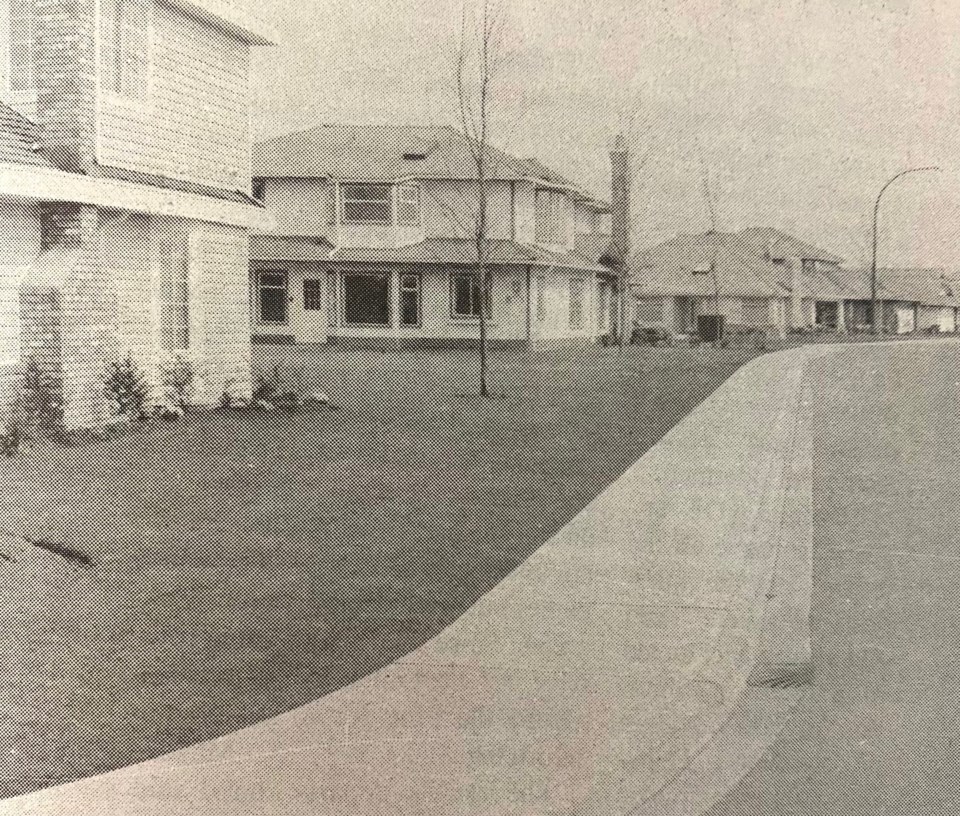Let’s head back to 1990 when the process to review Delta’s Official Community Plan kept the development-anti-development pot boiling.
The process kicked off March 1 that year with a public information meeting at the Town & Country Inn.
Mayor Doug Husband, municipal planner Wayne Dickinson and Greater Vancouver Regional District development services manager Ken Cameron were on hand to address the issues shaping Delta’s future.
Dickinson said the program was to deal with and manage change, rather than stop it. He also noted that keeping the population down in future years may not be so easy, adding the Lower Mainland was an attractive place to live and, because of that, it may have to be shared.
The future of farmland and the Tsawwassen town centre were raised as concerns by those in attendance.
During that same time, Delta council was also waiting for a housing crisis report by Husband, who had met with Vancouver Mayor Gordon Campbell and 12 other Lower Mainland mayors for a special meeting that address the region’s housing crises.
Also, around the same time, at a meeting of the Tsawwassen Business Association, former Mayor Tom Goode and Century Holdings General manager Peter Mould took a dim view of the future of South Delta.
They said that unless development and expansion were allowed in Tsawwassen at a reasonable rate, the community would likely die.
“I can’t even paint a bad enough picture of the way things are going in this town. Growth is not just decaying in the town centre, we’ve got full stagnation,” said Mould.
Goode accused the Tsawwassen Area Planning Committee, currently working on a South Delta Area Plan, was primarily made up of “no-growthers”.
Goode also noted council was afraid of further unrest following the recent Spetifore lands debacle.
Another group, calling itself the Delta Citizens for Properly Planned Development, were at odds with the planning committee, saying the resistance to growth created problems including a lack of affordable housing and a dying business community.
However, the Tsawwassen Homeowners Association, which emerged as a major force in civic politics at the time, at a meeting countered Tsawwassen’s many vacant businesses were simply the victims of “poor business decisions and poor management practices.”
One TBA member insisted their organization was not anti-growth but simply looking for development that was “sensitive to the needs of the community. Then, and only then, it would be supported.”
The Delta Farmers’ Institute also weighed in on the heated debate at the time, panning what it described as urban sprawl.
DFI president Albert Weaver told a meeting of the Tsawwassen Business Association that Tsawwassen was “in dire need” of a long-term, well organized, diversified growth strategy that could be implemented at a moderate rate. He suggested the Southlands and the parcel of land below the bluff at Imperial Village were areas to develop.
Also speaking on Delta’s housing issues in 1990 was the Urban Development Institute’s Pacific Region. At a presentation to council, president Fred Bucci said the city’s outdated zoning policies were helping push housing prices through the roof.
“Municipal zoning policies favour the construction of large single family housing and that’s exactly the type of housing beyond the reach of many people,” he said.
A UDI discussion paper on home ownership and affordability recommended greater densification by modifying zoning policies.
“We can’t manufacture any more land so we’ve got to look at other ways of providing adequate housing,” said Bucci.
However, council didn’t agree that greater densities and smaller units were the answer.
“I understand where you’re coming from but you’ve got to understand we have to protect the character of our neighbourhoods,” said Ald. Rick Green.



